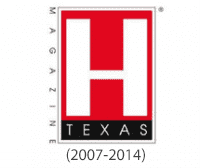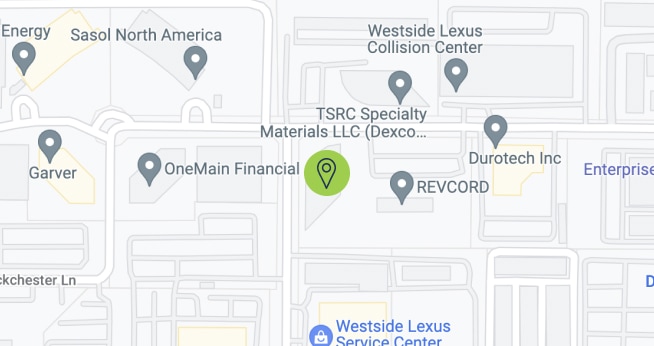What Is a Hospital Lien?
 If a personal injury victim cannot pay for medical services, the hospital can assert a lien that seeks recovery of those costs. The hospital lien will attach to any settlement or court judgment which the victim obtains.
If a personal injury victim cannot pay for medical services, the hospital can assert a lien that seeks recovery of those costs. The hospital lien will attach to any settlement or court judgment which the victim obtains.
How Do I Know If a Texas Hospital Lien Is Valid?
The requirements for a valid Texas hospital lien include:
- The patient is admitted to the hospital within 72 hours of the accident.
- A hospital lien must be in writing to be valid in the state of Texas.
- The lien must be filed in the county where the medical services were performed.
- The lien must be filed before the settlement is paid. If the money is paid before a lien is filed, it will not attach to the settlement.
What Happens When I File a Claim?
When you file a claim for your auto accident injury, a Texas hospital lien may attach to the claim if you were admitted to a Texas hospital within 72 hours of the accident. The lien can also extend to other hospitals that you are transferred to, along with any follow-up hospital visits that occur within the first 100 days of the accident.
A hospital lien doesn’t apply to any insurance claims filed with your own insurance, claims involving wrongful death or claims involving workers’ compensation The auto liability insurance company must include the name of the hospital on any checks paid out for a settlement.
Why Don’t Hospitals Bill Your Health Insurance?
The reason hospitals don’t bill your insurance is that they hope to get paid more money through your auto accident injury settlement than by sending your insurance company the bill. If the hospital bills your health insurance, it gets paid only a contracted amount. When the hospital issues a lien, they may get the full amount of the original bill paid back to them out of the settlement. Some hospitals inflate the actual cost of your stay when billing for services, because they expect to receive a small portion of those costs. When a hospital is paid out of your settlement, it might not leave you with anything after payment.
Why Don’t Hospitals Bill the Negligent Driver’s Insurance?
It’s likely that you won’t be paid anything for your insurance claim against the negligent driver’s insurance policy until all your hospital expenses for treatment are gathered and assessed. It could take months or years before the other driver’s insurance company agrees to a settlement to compensate you for your medical bills and other injury-related costs. Most hospitals do not want to wait that long to receive payment.
What Can I Do About a Hospital Lien?
Although some hospitals are hesitant to negotiate liens, you should hire an attorney to contact the hospital and attempt to settle the lien. This will ensure that you do not pay more money for the medical services you received than needed.
Sometimes hospitals don’t attach liens if the accident victim is the at-fault driver. They can decide to file a claim with your health insurance provider, bill you for unpaid expenses and send your account to collections instead.
How Do I Get a Hospital Lien Removed?
It is recommended that you consult with an attorney to explore your legal options. You want to ensure that during the collection process you are left with enough settlement money to cover all your expenses. This is your most important priority since your accident injuries caused you pain and suffering, as well as additional expenses and lost wages.
When your attorney negotiates a hospital lien, it is dependent upon the nature of your case and what you can potentially receive in your settlement. For example, if your settlement is only for the amount that the hospital charged, it’s unlikely that the hospital will take most of it should you receive additional compensation.
When you start receiving collection notices before your case is settled and there is an existing hospital lien, you need to have your lawyer contact the hospital to help stop the collection efforts until you are awarded a settlement. An attorney can review any itemized charges, or any unrelated charges to your bill, or look for double billing, and have these additional charges removed from your bill.
Hospital liens will stay on your record until they are resolved. You need the legal advice of an experienced auto accident lawyer to make sure the hospital lien is removed since it could affect your credit. You may have other expenses you are unable to pay and need to work with creditors to pay these bills.
Legal Help for Injured Car Accident Victims
A serious auto accident can leave you struggling to get your medical expenses paid. You could be in severe pain due to your injuries. On top of that, you must deal with a hospital lien that might consume your settlement money and leave you with nothing left but bills you can’t pay.
We can help negotiate with the hospital to remove the lien and possibly get the bill reduced. Hospitals might consider reductions in your bills if they would result in extreme hardship for you and your family.
Our attorneys have dealt with hospital liens on many car accident cases in the Houston area. It is important to have an experienced personal injury attorney who understands hospitals liens in the state of Texas. You need experienced attorneys with your best interests at heart who can seek the maximum compensation that you deserve. Contact the Houston law firm of Fleming Law to schedule a free consultation today. You can reach us by phone or online.

Brendan received his JD from South Texas College of Law and his MBA from Baylor University. He then began his legal career as in-house counsel for a publicly-traded company, advising on matters such as mergers and acquisitions, securities, compliance, and general corporate transactions. He then worked at a national law firm in which he represented commercial banks, private equity firms, and business owners in complex transactions before joining Fleming Law, Brendan uses his considerable knowledge of business-related matters by working on cases involving business law, real estate law, and contracts. Connect with me on LinkedIn








